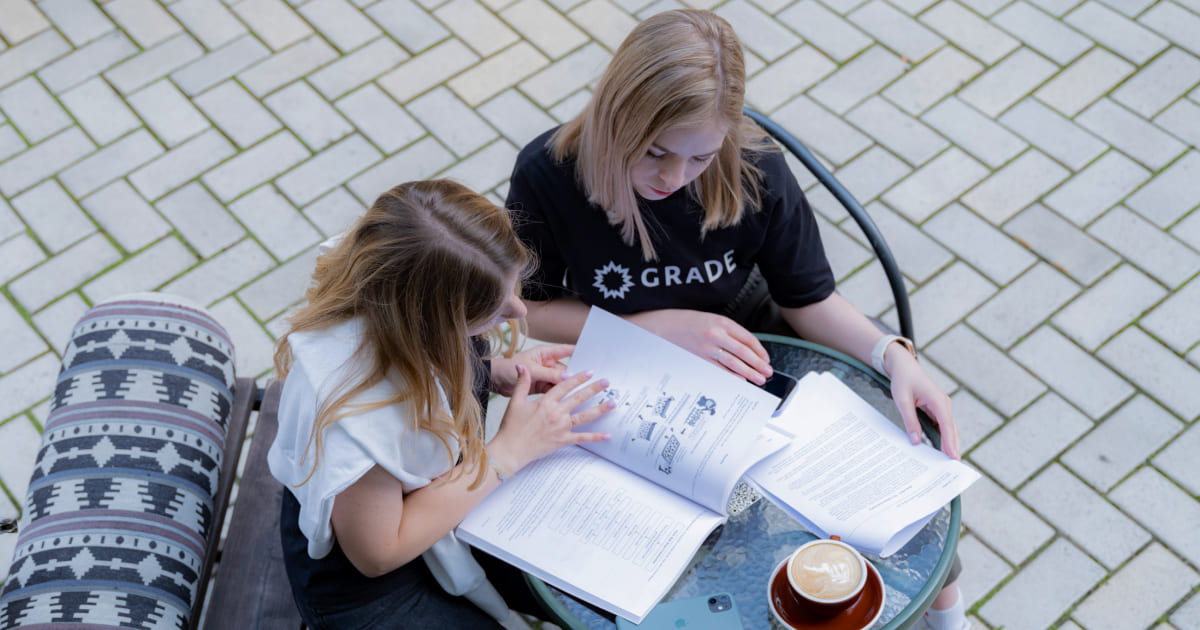
Why should English teachers take language exams?
- Cambridge English
- Teaching qualifications
- Tips & Strategies
- Methodology

04.10.2022
Have you ever met a teacher who does not plan his or her lessons? Although they might not write detailed lesson plans like those for the CELTA course, everyone thinks about what they will do with their students for the next 45 minutes.
Among the ocean of resources and materials available nowadays and the eternal lack of time during the lesson, it's really challenging to plan experiences that will keep students engaged and lead to successful language learning.
So today, we are going to talk about how to avoid typical mistakes and optimise the lesson planning routine.
Think how many times you planned a lesson the following way:
At this point, a friendly conversation between colleagues takes off on details of the entertaining activity, the materials Teacher A has to prepare, and what part of the game was a blast in Teacher B's class. Thus, both teachers dive into thinking about how to bring more fun to the lesson. And this is tricky because when you start with the creative part of lesson planning, you are likely to lose sight of the focus of instruction.
You are not alone in making this common mistake. The good news, it can be easily corrected by asking yourself a simple question:
"What will my students be (better) able to understand/do by the end of the lesson?"
Once you know the outcomes of your lesson, you can start thinking about the learning experiences your students will need to achieve the aims.
How to plan lessons effectively?
Join our online course!
Now when you know about the most typical mistake teachers make trying to entertain students, let's think about other things that are done by teachers with good intentions, but from which students do not benefit.
Diligent teachers often want to give their students as much as possible, i.e. to squeeze pronunciation practice, listening, reading, writing, new vocabulary, grammar, and speaking into one lesson.
Let me disappoint you, this is the worst thing that can be done. As was mentioned earlier, we need to know what our students will be able to do by the end of the lesson, i.e. set clear aims.
Of course, we can select activities to practice each skill and system, but will it really work in one lesson? Will they all serve the same purpose? Or are they going to puzzle our students? When selecting materials and activities, we need to know what we teach and what our students will have practised or learnt by the end of the lesson. For this reason, our lessons should focus on one aspect, for example, grammar or vocabulary, or practising a skill:
If students need to learn Past Simple and practice it in speaking (talk about their past experiences), then you need to teach them this tense and help them use it in their stories. This is not a good idea to teach them travel vocabulary if they want to tell a story about a bad holiday in this lesson.

You might think that teaching only grammar or only writing is boring, but if you plan if you carefully plan time and interaction for each stage of the lesson, your students will achieve the goal – enough relevant language practice.
If you don’t think about the timing of the tasks in your lesson, it is very likely that you will not manage to do all the necessary practice. You can overplan, i.e. plan too many tasks and rush through them, which is counterproductive, or vice versa, plan very few activities, and finish everything too fast without providing your students with enough language practice.

Remember, students need time to process the information and use the grammar and vocabulary they have been learning in speech. So you have to select activities that not only add to the achievement of the aims but are well-balanced, well-timed, and well-arranged.
Think about how much time it will take to complete each activity and write it down in your lesson plan.
Even the most detailed lesson plans cannot prevent us from things that can go wrong. The main reason why this happens is that teachers think about how well everything will go with doing this or that activity, but don't think about things that might not work. That's why it's a good idea to anticipate problems and prepare for things that can go not according to the plan.
These can be different things like your laptop that crashed, and you cannot show a video you built your lesson around, or your students who didn't manage to complete a controlled practice task because they had been struggling with the grammar structures in it. This can also be a student who is always late for class, or the odd number of students who come to class for which you have planned a lot of pair work, or even the noise coming from the outside.
If you anticipate what might go wrong and think about possible solutions to the problems, you will be prepared for everything.
Now we know what and how we are going to teach. But how do we see the outcomes?
Many teachers plan their lessons without thinking about how to assess what students have learnt. When we talk about assessment, we shouldn't think about writing tests straight away. It's about analysing what went well or wrong and why in your lesson, and what can be improved in the future.
Have a set of criteria in order to see whether what you do in class is effective and whether students really learn what you want them to learn.
For example:
Did students use the grammar/vocabulary they had been learning in speech during a freer practice task?
If you have specific criteria, you can judge whether learning happened.
Think about assessment as not a grading of student work, but as a test of the strategies you used to get learners to achieve the lesson aims. If students fail, adjust your strategies and teach them in a different way.
Avoiding these mistakes will increase your confidence as a teacher and help you plan effectively on a daily basis. Last but not least, always look at what you have planned and ask yourself how you can meet your lesson aims in a different way with the same outcomes.
Have you ever made any of these mistakes?
Yulia Chorna
Author
Product Manager at Grade University | Experienced Educator in General, Business English & Exam Prep | ELT Conference Organiser | Speaker at TESOL & IATEFL Conferences | Passionate About Teacher Development & Educational Innovation
Comments
Leave your comment